Snapps.ai is the best website builder for online courses. Its drag-and-drop editor inserts widgets like email, call, audio, and video. Use the image gallery widget to display testimonials from students who completed their courses. Apply built-in SEO tools to rank your site higher on search results. Include relevant keywords like “online learning”, “webinars”, or “online coding courses”. Other features to use are:
Snapps courses are now available
The best website builders for online courses are:
- Snapps.ai
- Kajabi
- Podia
- WordPress
- Webflow
A website builder has customization options for online courses. It customizes pages for webinars, waitlists, quizzes, and enrollment sign-ups. The webinar page has terms, definitions, and concepts explaining available courses. Also, it has contact forms for users interested in joining workshops and retreats.
According to Nimble AppGenie, e-learning platforms have features like skills and certification tracking to measure student performance. It includes certificates of completion for students. It also has a user profile feature to store certificates, grades, reading materials, and miscellaneous files.
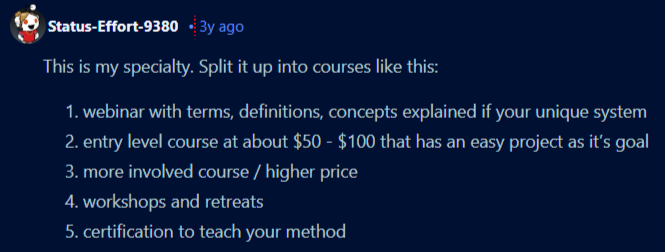
Website builders can add differentiation to online courses. Its divided into three categories: basic, intermediate, and advanced. These courses offer adequate materials to students. A table widget labels course categories and includes their prices. According to LearnWorlds, course building boosts 60% of student knowledge retention. Website builders have third-party plugins for bundle courses.

Website builders have SEO and AI tools to enhance blog content and rank sites on search engines. It produces content about personal development, making money online, and digital marketing. Online courses can be promoted to Facebook, Instagram, Twitter, YouTube, and TikTok.
This article discusses the 5 best website builders for online courses. It includes LMS features, reviews, pricing plans, and sample templates.
1. Snapps.ai

- Build multiple pages for modules, course descriptions, and enrollment
- Appointment booking for upcoming consultations or assessments
- Live chat widget to communicate with users in real-time
- Payment gateways so students can directly pay on your site
- Customizable student portal to access grades, courses, and certifications
- Google Sheets to list and update student grades and attendances
- Personalization rules to add notification bars and pop-ups
Snapps.ai pricing plans:
- Single Site Pack - $19/month
- Starter Pack - $79/month
- Decade Pack - $159/month

Slide title
Write your caption hereButton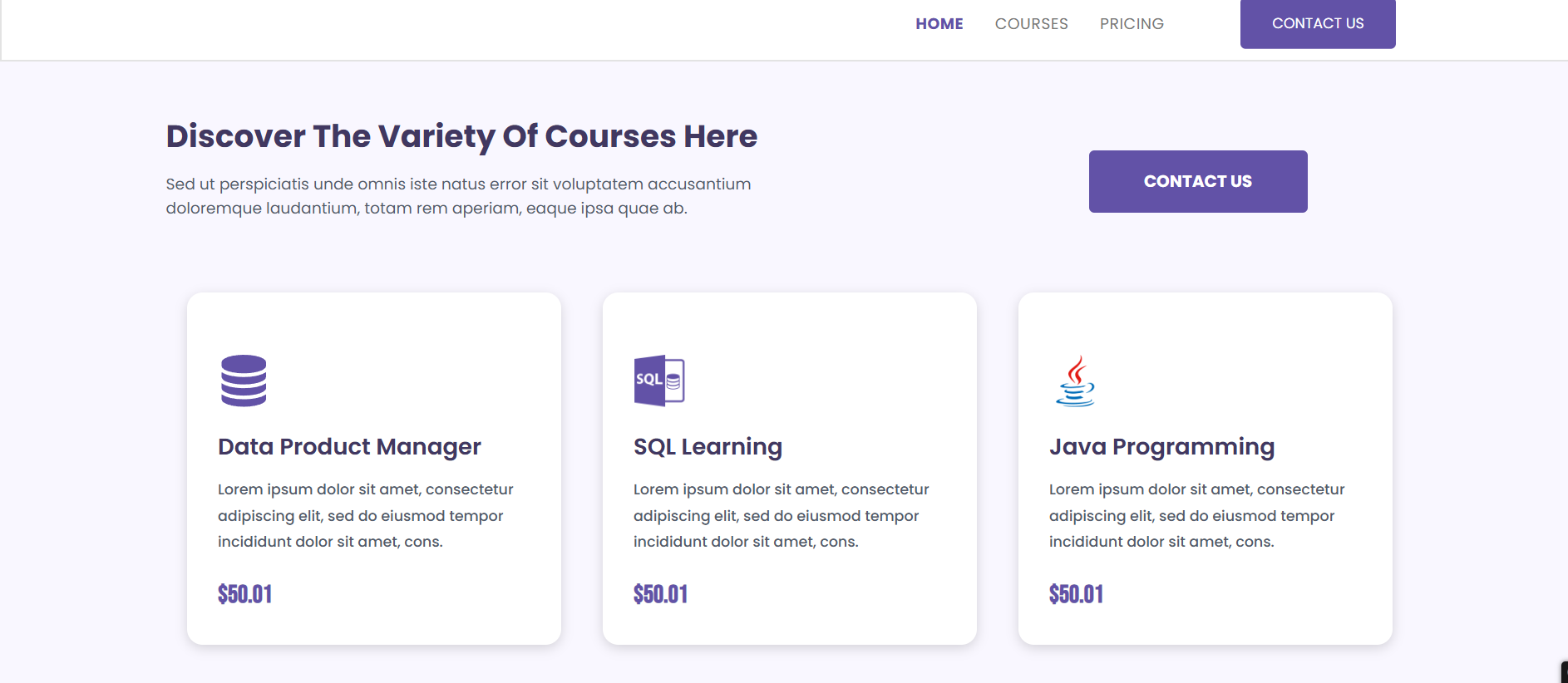
Slide title
Write your caption hereButton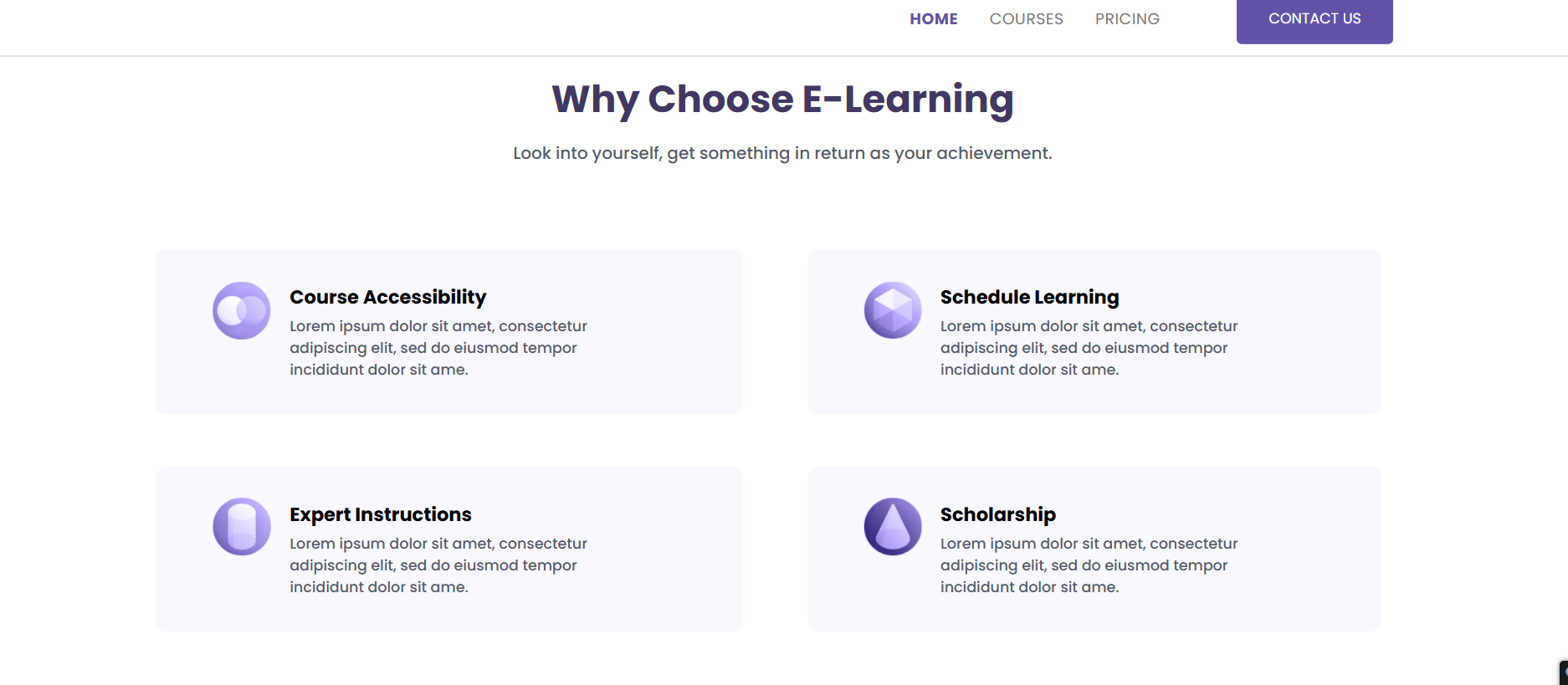
Slide title
Write your caption hereButton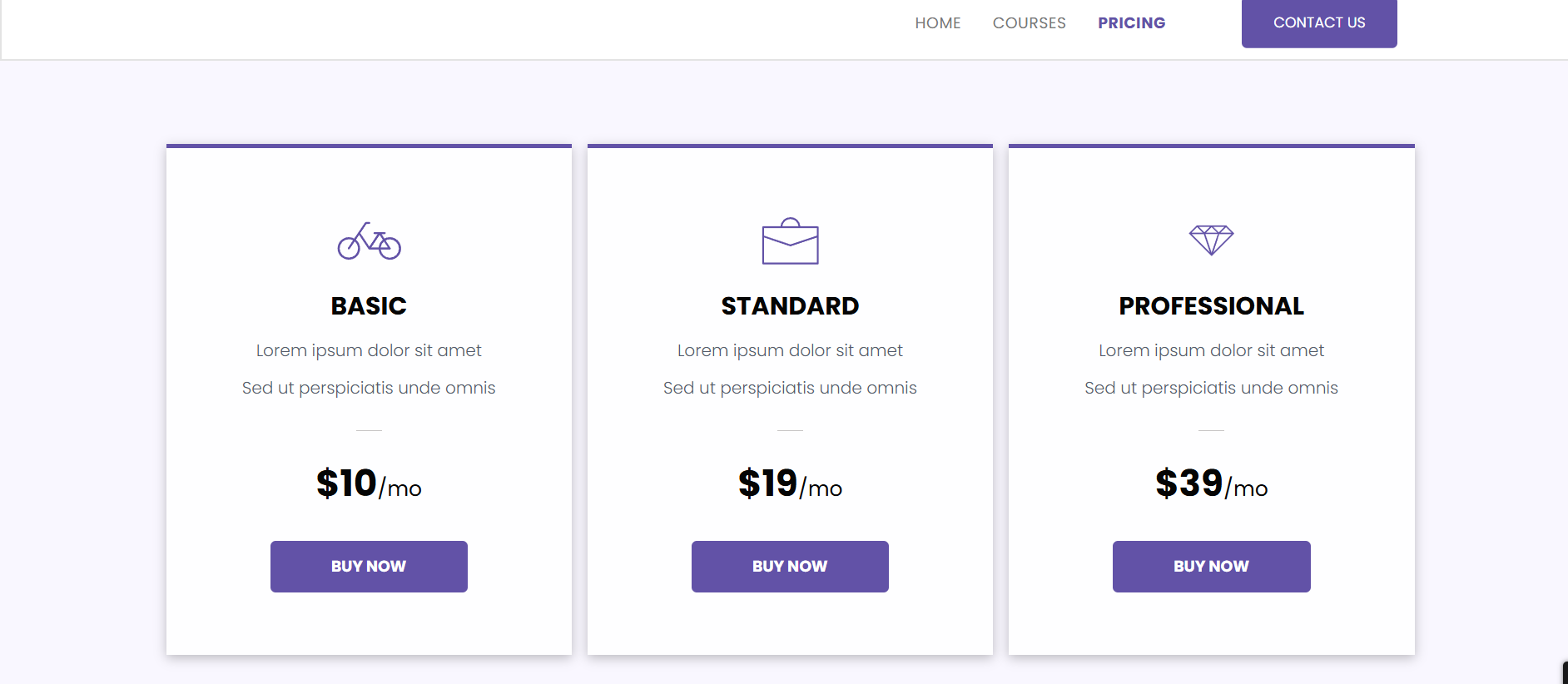
Slide title
Write your caption hereButton
Snapps has customizable dashboards, templates, layouts, and features. It gives a wonderful balance between ease of use and functionality. Also, Snapps is great for migrating an old website to its platform.
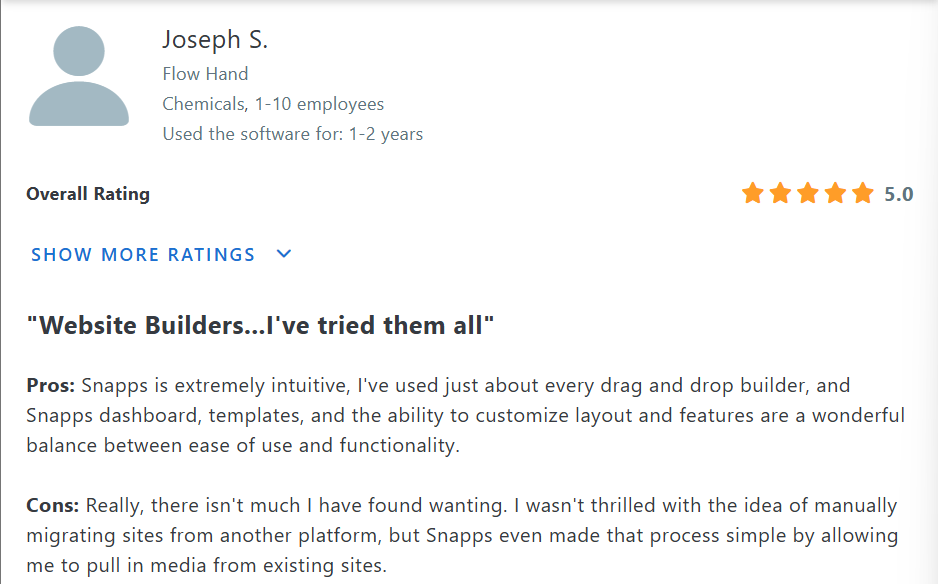
2. Kajabi

Kajabi is an all-in-one platform with marketing automation tools for online courses. The Kajabi mobile app is good for users who often view courses on their phones. They don’t need to remember passwords or check their desktop for notifications. It’s a user-friendly website builder with customizable themes and content creation tools. Below are other relevant features for your website:
- Online payments to process transactions or manage subscriptions
- Build dynamic pages for instructor profiles, FAQ, and course catalog
- AI content assistant to generate a course outline based on title and description
- Cohort-based courses for group learning
- Self-paced learning which includes downloadable resources, certificates of completion, and video content, and quizzes
- Visual editor for email newsletters to keep in touch with students
Kajabi pricing plans:
- Kickstarter - $55/month
- Basic - $119/month
- Growth - $159/month
- Pro - $319/month

Slide title
Write your caption hereButton
Slide title
Write your caption hereButton
Slide title
Write your caption hereButton
Kajabi is a flexible platform for online courses. It's easy to use, so you can grow your personal branding and marketing. However, it doesn’t have phone support and you can’t edit the media library.

3. Podia

Podia is a flexible website builder with no plugins. You can bundle products like courses, coaching, and downloadable forms. Bundles make it easier to convert leads into students and receive abundant resources. Give course certificates and coupons for students who completed their courses. Also, provide instant payouts so users can already access available tutorial guides. Other features include:
- Course comments so students and instructors can help one another virtually
- Video hosting for course orientation, topic overview, interviews, and lectures
- Waitlist feature to build excitement for interested users and test various special offers
- Answer online quizzes and receive instant grades
- Future start dates to manage enrollment in batches and schedule group coaching calls
Podia pricing plans:
- Mover - $33/month
- Shaker - $75/month

Slide title
Write your caption hereButton
Slide title
Write your caption hereButton
Slide title
Write your caption hereButton
Podia is suitable for creating small amounts of content. Email broadcasting is good for sending announcements about video lessons or slideshows. However, it’s a slow website, and it’s very difficult to pull reports about specific sales.
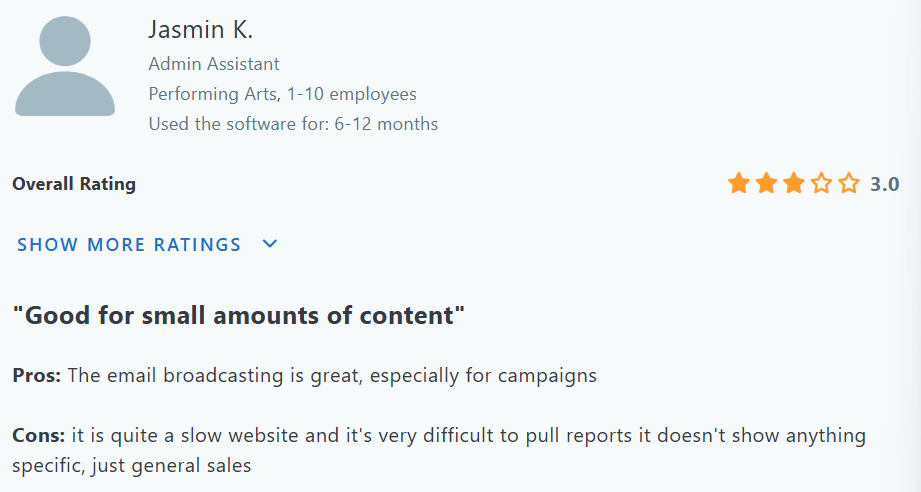
4. WordPress

WordPress has extensive plugins and themes for online courses. Plugins to use include Tutor LMS, Certificate Customizer, and Course Scheduler. Choose from various beautiful templates that resonate with your brand identity. Built-in SEO tools rank your site higher on search engines. Add keywords like “virtual classes”, “beginner [topic] classes online”, and “marketing courses online”. Other WordPress features are:
- Email newsletter to send updates regarding assignments, projects, quizzes, and assessments
- Post scheduling to announce courses like marketing, business, graphic design, and programming
- Jetpack Search so website visitors can search for available courses
- Collect online payments before students start their modules
- Form block to insert contact forms or registrations for webinars
WordPress pricing plans:
- Personal - $4/month
- Premium - $8/month
- Business - $25/month
- Commerce - $45/month

Slide title
Write your caption hereButton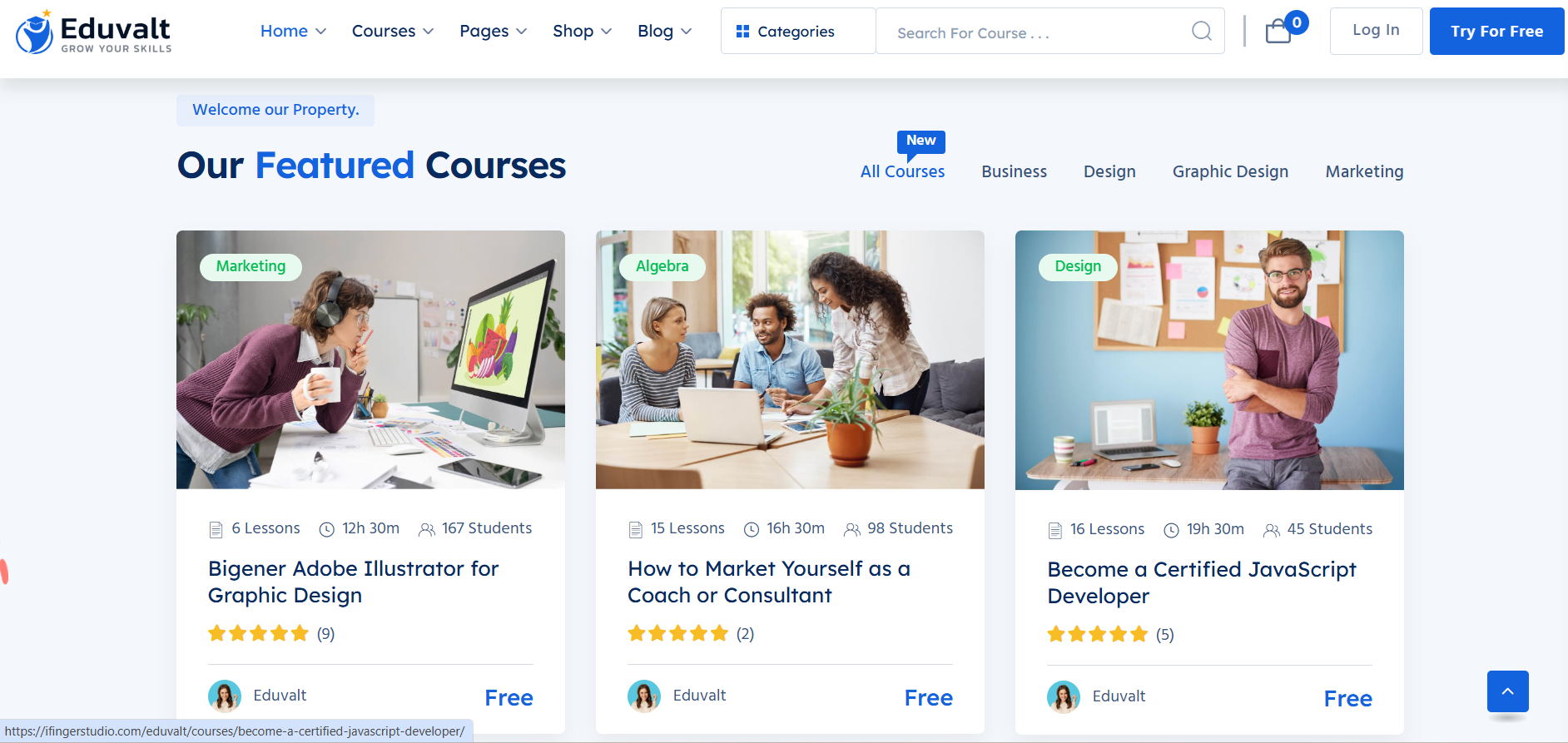
Slide title
Write your caption hereButton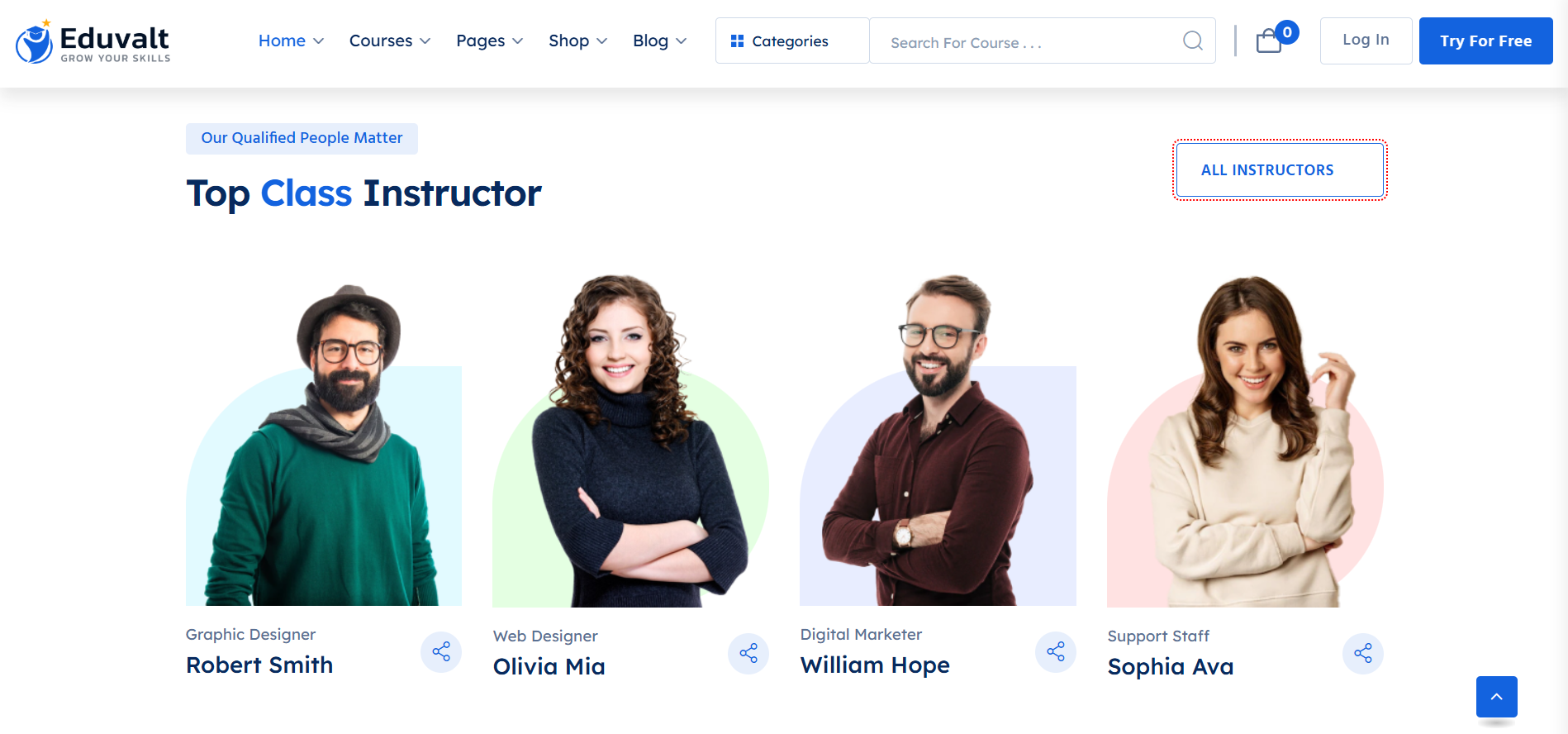
Slide title
Write your caption hereButton
WordPress gives you total control over your website. Independently enhance features and update content to save time and money. It has high customization tools to develop a fully functioning website. However, beginners may find it difficult to do the initial setup. Also, WordPress has a learning curve. You need to have technical knowledge to handle updates, security, and performance.
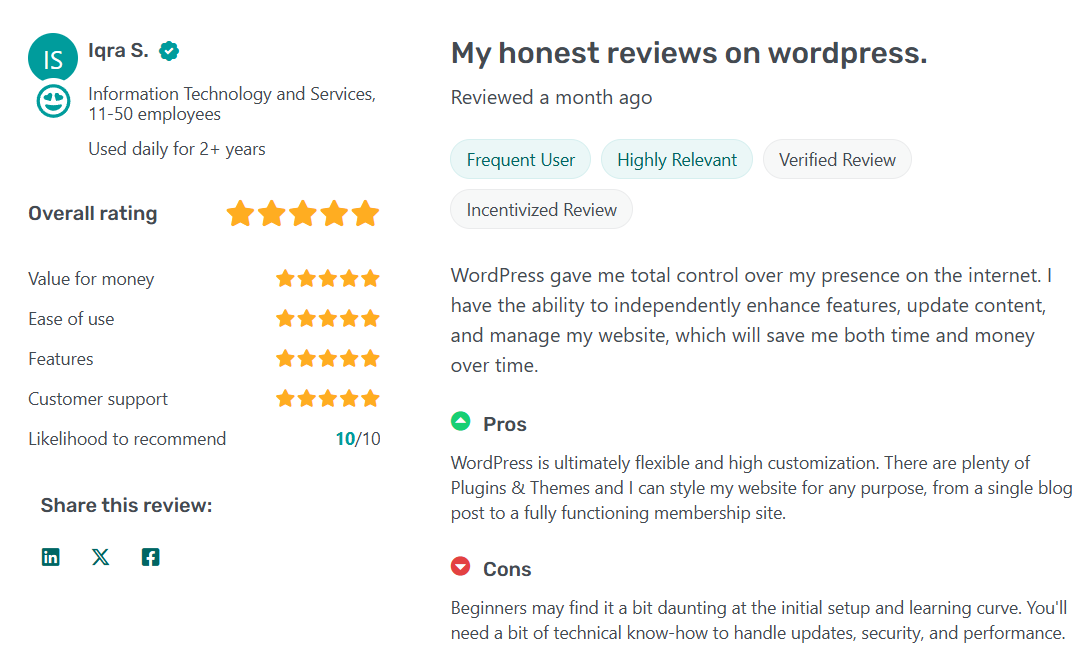
5. Webflow

Webflow is an advanced website builder for online courses. It has a collaboration feature for instructors to use. Anyone from your team can be assigned as a content editor. So, they can update texts and images while you work on the design. Its responsive web templates and images improve user experience. Webflow’s customizable content structures are good for managing notifications, quizzes, polls, and videos. Use other features like:
- Contact and lead generation forms to reach out to potential students
- CMS collections for lessons, quizzes, and modules
- Lightbox galleries to showcase screenshots of tutoring, webinars, and conferences
- Dashboard folders to organize student portals
- Upload files to forms and collect PDF worksheets, transcripts, and ZIP files
Webflow pricing plans:
- Basic - $14/month
- CMS - $23/month
- Business - $39/month

Slide title
Write your caption hereButton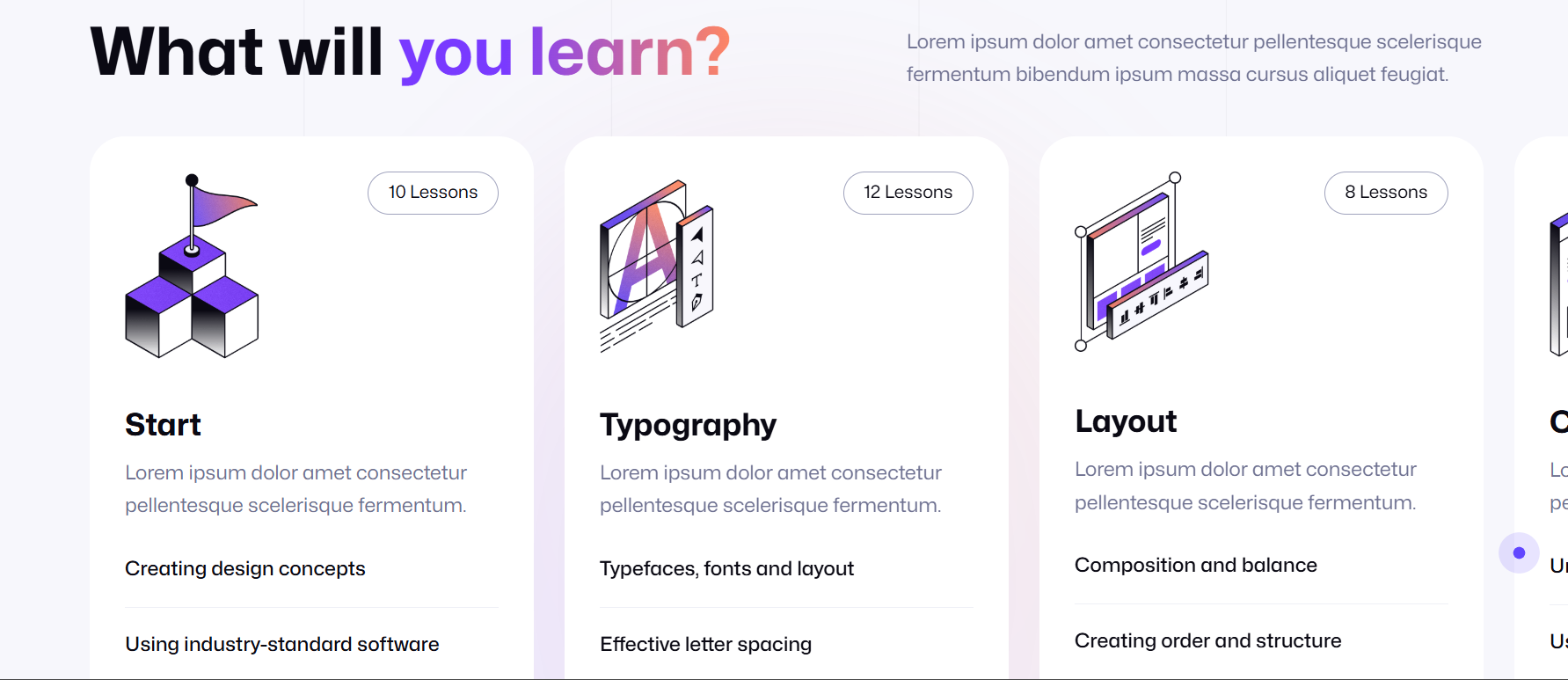
Slide title
Write your caption hereButton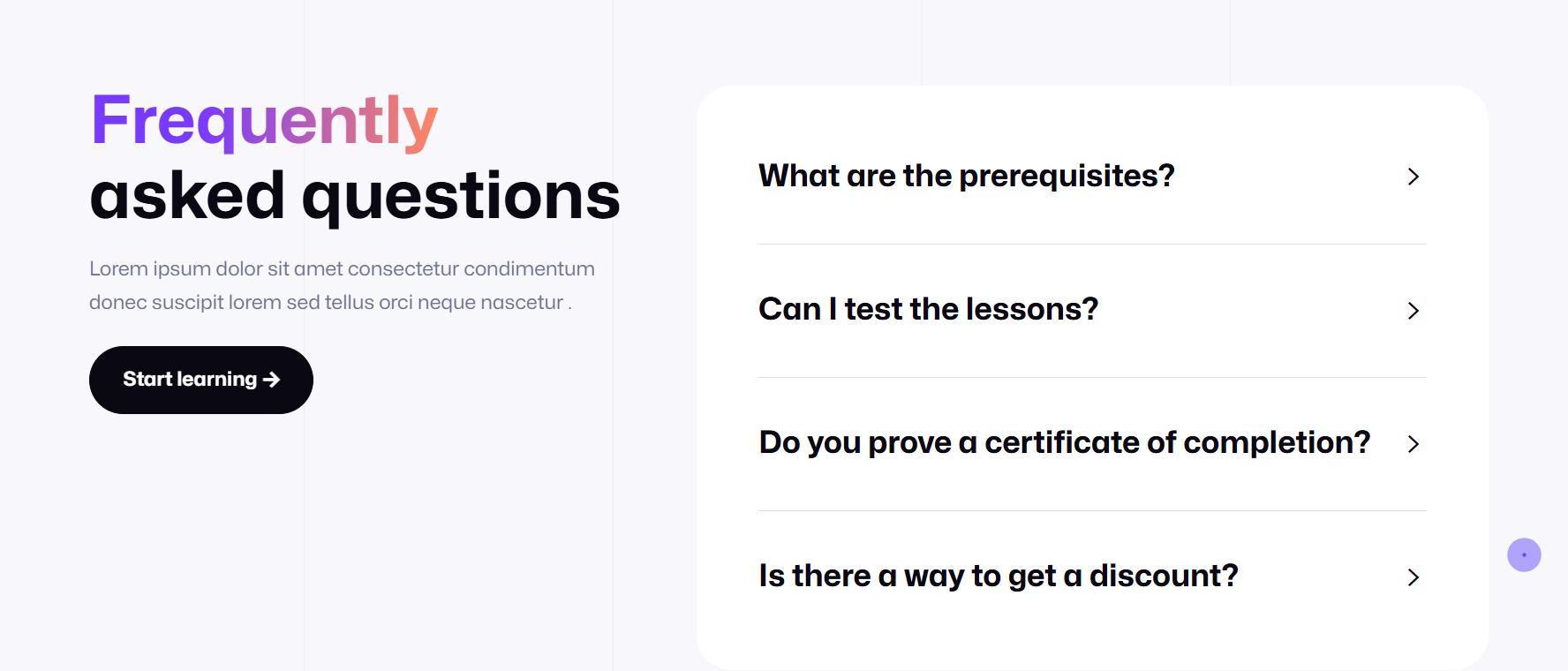
Slide title
Write your caption hereButton
Webflow has a user-friendly interface good for beginners and web developers. Use the tutorial course to learn more about Webflow’s advanced features. However, it’s too expensive for those who are on a budget. You need to have separate payments for your account and your site. Managing multiple sites can be extremely expensive.
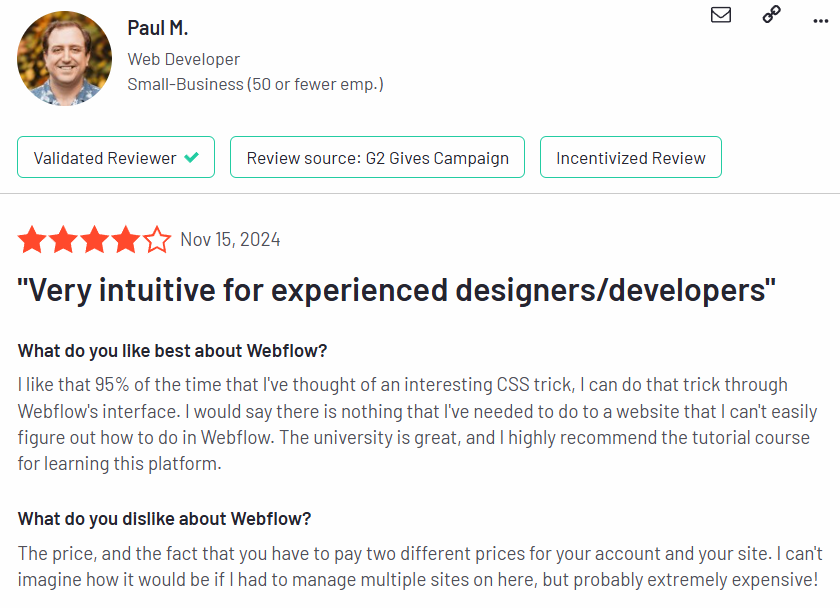
What LMS Features Are Available On Website Builders for Online Courses?
- Student management - Automatically enroll users upon registration. Students can create and manage their personal accounts based on enrolled courses.
- Assessments - Provide personalized certificates upon course completion. Students can track grades and upload assignments for review.
- Course creation tools - Include downloadable materials like PDFs, videos, audio, and presentations.
- Payment options - Website builders have Stripe and Paypal for students to complete remaining balances. Offer various pricing plans for courses access like basic, premium, and exclusive content.
- Engagement tools - Use the live chat option to communicate with students in real-time. Add polls and surveys to encourage active participation.
Are Online Courses and Membership Sites Different?
Yes, online courses and membership sites are different. Online courses focus on delivering efficient and virtual learning experiences. While membership sites prioritize building a community than completing a course. For online courses, students follow a step-by-step guide using videos and quizzes. The content for membership sites is often released periodically. Content includes articles, coaching, and forums.
Online courses are great for encouraging students to study on their own. It’s self-paced and you only need to complete the materials. However, membership sites require continuous commitment with monthly or yearly subscriptions. Some
membership website builders offer affordable pricing plans for those who want to share articles or courses.
What is the Best Website Builder for Online Courses?
The best website builder for online courses is
Snapps.ai. Its mobile optimization features are great for students who use Ipad and smartphones. Customize multiple pages for course catalog, testimonials, pricing, enrollment, and resources. Snapps' built-in AI and SEO tools enhance blogs to rank your site on search engines. Use widgets for inserting email, call, image gallery, text, and social media icons. Generate leads with contact forms and calendar scheduling to enroll interested users. Also, use personalization rules to trigger notification bars and pop-ups. These features notify students about assessments, assignments, live Q&A sessions, and certifications.
Recent Articles
Our Support Heroes Are Here For You
Don’t waste time on tedious manual tasks. Let Automation do it for you. Simplify workflows, reduce errors, and save time for solving more important problems.



